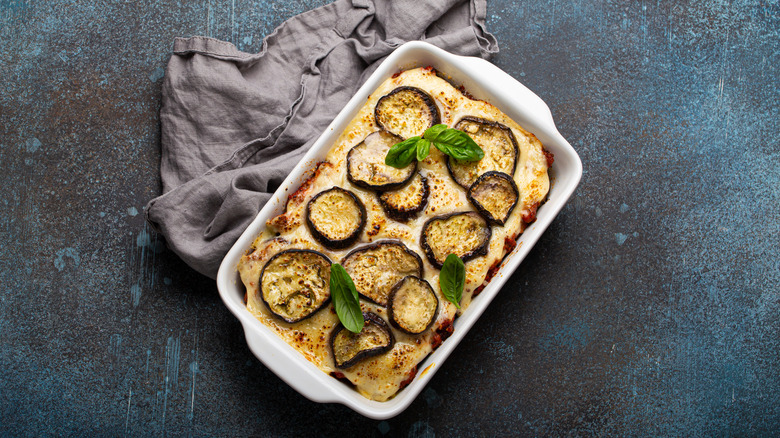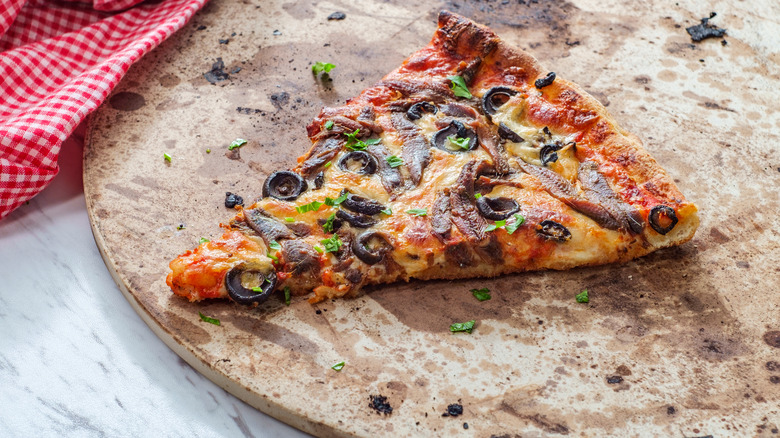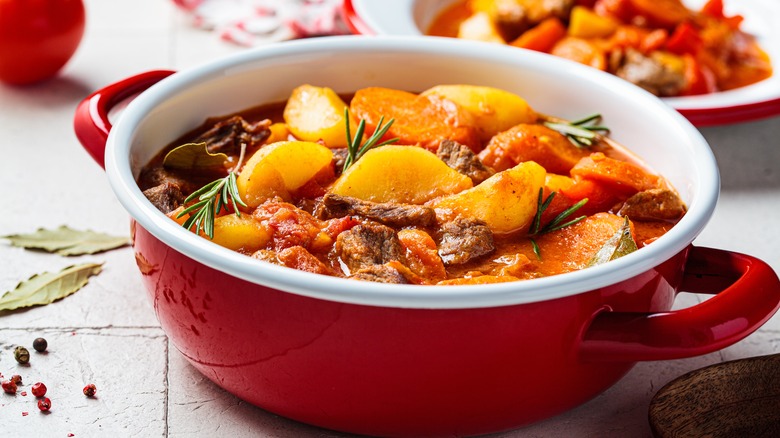How To Effectively Clean That Stained Stoneware In Your Kitchen
Stoneware dishes are a great tool in the kitchen for home cooks who want to get a lovely crust or bake anything from a loaf of bread to a pizza or a casserole. However, because your stone casserole dish, dutch oven, or pizza stone is probably an essential part of making your favorite recipes shine, it's important to take care of it. When using stoneware, nothing is more important than learning to clean it properly. This is because, like cast iron, many stoneware items can not and should not be washed with soap or put in the dishwasher. So, how do you clean them and remove stains?
Well, as it turns out, to get rid of tough stains on stoneware, the best option is the combination of baking soda and water. However, before you decide to go at your cookware with a scrub brush and baking soda paste, you should first figure out whether or not the stains really need to be washed. Like cast iron cookware, stoneware often performs better, creating a richer flavor when seasoned. So, some of those hard-to-clean stains may be beneficial and quite normal. However, if you have a large stain ruining the look of the piece, it's also understandable to want to remove it.
Removing stains from unglazed stoneware
Before you wash your stoneware, you first need to figure out if your particular dish is glazed or unglazed. Glazed stoneware has a light enamel coating over the stone and often looks shiny and smooth. On the other hand, unglazed stoneware doesn't have this coating and feels coarse and rough like natural stone. Pizza stones are often unglazed, requiring special cleaning methods to remove crumbs and residue. You will also find certain bread and casserole dishes made from unglazed stone.
Unglazed stoneware should never be washed with any soaps or detergents. This is because the porous stone will absorb the soap, which will then leach into future dishes, impacting the flavor. Instead, for regular cleanings of unglazed stoneware, you should simply scrape off burnt food debris with a nylon dish brush and some water. You can also treat hard-to-clean stains by mixing baking soda and water and then allowing the paste to sit on the stone for about 15 minutes before scraping it off and rinsing.
The pros and cons of putting glazed stoneware in the dishwasher
Unlike unglazed stoneware, the enamel coating on glazed stoneware makes it less porous. This means you can use soap on them during the cleaning process. You can even put some glazed stoneware items in the dishwasher. While washing glazed dishes in the dishwasher is super convenient, even with stoneware advertised as dishwasher-safe, you may still want to avoid putting it in the dishwasher. The water's high heat may damage the enamel coating and ruin your stoneware over time.
Instead, the best way to wash glazed stoneware is often with a nylon brush and warm, soapy water. However, you should always be careful to avoid using citrus-based soaps because the natural acidity of citrus can damage the enamel. If you aren't sure if your soap has any citrus ingredients, it is best to avoid using it when washing the stoneware. Most of the time, simply washing your glazed stoneware with a nylon brush with hot water will do the trick. Avoiding soap has the added benefit of not destroying any seasoning you've built up on your cookware.


